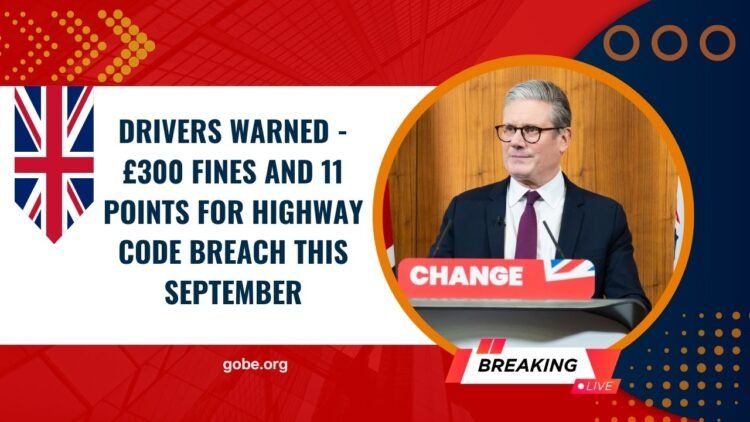This September, motorists are being warned of strict penalties for breaching Rule 161 of the Highway Code. With Freshers Week and the start of the academic year, thousands of students are packing cars to head back to university.
However, overloading vehicles or obstructing visibility could cost drivers dearly. Offenders risk fines of up to £300, 11 penalty points, and even a driving ban if found in violation.
Understanding Rule 161 of the Highway Code
Rule 161 of the Highway Code is clear:
- Mirrors must be used effectively throughout the journey.
- Drivers should check mirrors frequently to know what’s behind and beside them.
- Mirrors should be used in good time before signaling, changing direction, or adjusting speed.
- Drivers must remain aware of blind spots, as mirrors do not cover all areas.
In practice, this means any obstruction that blocks mirror use or reduces visibility can place drivers in breach of the rule.
Why September Is High-Risk
- Student travel surge: Freshers Week means cars are packed with bedding, clothing, and essentials.
- Overloaded vehicles: Carrying excessive weight or stacking luggage high can affect vehicle handling.
- Blocked visibility: Items piled in the back seat or against windows can restrict mirrors and blind spot awareness.
- Inexperienced drivers: Many young drivers may not realize that poor packing could be classed as a Highway Code breach.
The Penalties Explained
| Offence | Potential Penalty | Impact |
|---|---|---|
| Breaching Rule 161 (mirror obstruction, overloaded car, impaired control) | £300 fine | Standard penalty for motoring offences |
| Severe breach or repeated offences | Up to 11 penalty points | Points remain on licence, increasing insurance costs |
| Probationary drivers exceeding point limits | Licence revocation or suspension | New drivers risk losing their licence entirely |
| Vehicle over legal weight limit | Fine + points | Handling compromised and increased risk of accidents |
Expert Warnings for Motorists
Motoring experts stress that:
- Blocking the rear window is not illegal by itself, but if vision is impaired or control is affected, it becomes a punishable offence.
- Overpacking makes handling more difficult and increases braking distance.
- Exceeding weight limits can strain tyres, brakes, and suspension, leading to mechanical failure and accidents.
- Young drivers must be especially cautious, as accumulating points early in their driving history can quickly lead to a ban.
How to Stay Compliant This Month
1. Pack Smartly
Keep heavy items low in the boot and avoid stacking belongings above the rear seat headrests.
2. Maintain Clear Vision
Ensure that side mirrors and front visibility remain unobstructed.
3. Respect Weight Limits
Check your vehicle’s maximum load rating and avoid exceeding it.
4. Use Mirrors Frequently
Always check mirrors before signaling, braking, or changing lanes.
5. Plan Travel Ahead
If carrying too much, split loads with a friend, rent a small van, or arrange deliveries.
6. Prioritize Safety During Freshers Week
With late-night social events, plan safe transport home instead of risking impaired driving.
This September, drivers must pay close attention to Rule 161 of the Highway Code. Overloading your car or obstructing your mirrors could mean a £300 fine, 11 penalty points, and the risk of losing your licence.
With thousands of students on the move, taking simple steps such as smart packing, respecting weight limits, and maintaining clear visibility will keep journeys safe and stress-free.
FAQs
Is blocking the rear window always against the law?
Not necessarily. It only becomes an offence if it blocks your front view, affects control, or contributes to unsafe driving.
What happens if a new driver gets 11 points?
New drivers can have their licence revoked if they accumulate too many points, which often means retaking their driving test.
Can police stop me just for overpacking my car?
Yes. If an officer believes your load compromises safety, visibility, or handling, you can be stopped and fined.

